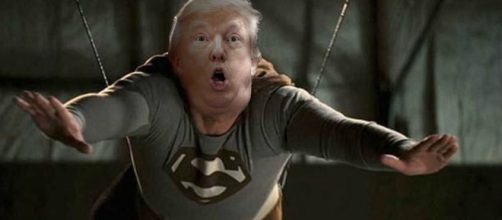On Saturday in Italy, President Trump refused to support and endorse the #Paris climate accords, disappointing the Group Of 7 summit countries as he ended his first foreign trip abroad. He walked out of the summit at odds with America's allies and leaving the world wondering at what point will America stop putting unenlightened self-interest before the stark and urgent need to halt the global warming?
Trump also returned to the United States of America beneath a growing cloud of #suspicion and distrust as his increasingly pronounced ties with Russia surged into focus on the national arena.
With his son in law #Jared Kushner under investigation for attempting to set up a back channel between America and Russia in December, the media are hungry for answers, the FBI are deep into a worrying investigation and many are starting to use the word 'impeach.'
The climate accord stalemate
Trump refused to negotiate or soften on the pact following on from three days of intense lobbying and fierce backroom debate with the other #Group of 7 leaders, whose efforts were kick started on Wednesday with an appeal from Pope Francis who appeared in official photos next to Trump without the smile that he had sported for the same photo with Barack Obama. Meanwhile, the other six #Group of 7 nations endorsed their commitment to reducing greenhouse-gas emissions by issuing a collective statement on Saturday.
The stalemate, that Trump seems to be in full control of, has left many wondering what future America will have, if any, in the landmark climate accord. Perhaps Trump is trying to drive a hard bargain – he is after all a businessman and such moves are common in the shark-like world of real estate and high finance. However when it comes to the health of the planet, an issue that effects not only the people living here, but also the water, the trees and the atmosphere, it seems that Trump is taking a #narcissistic approach to America's involvement in global affairs.
Trump did promise that he would announces his decision in the coming week on whether the USA would pull out, which would make the world's largest polluter the first of 195 signatories to leave the agreement.
The Paris accord was seen as being the main issue that drove the most divisiveness between the United States and its allies, but there were other issues brewing too.
Trump took #Germany to task for its trade practices; he also was sure to lecture #NATO members on their less than stellar support of the nuts and bolts of the NATO alliance.
“There was a lot of give-and-take between the different countries in the room,” director of the #National Economic Council Gary Cohn said after the summit folded. Kohn was careful to add that the other member countries understood President Trump’s refusal to make a decision in Italy, even though they disagreed with that position.
“The President’s only been in office for a certain period of time, and they respect that,” Cohn added. He continued on saying that all the countries are allies, and they are all trying to get into the right place together and to show respect to each other.
And yet the reaction to America's stance on the accord was critical and brisk. One of the directors of the Union of Concerned Scientists, Alden Meyer, said that President Trump’s indecision "made it impossible to reach consensus at the Taormina summit on the need for ambitious climate action. But he stands in stark isolation.”
The leaders of France and Germany firmly articulated their disappointment, with #Angela Merkel saying that the whole discussion over global warming and climate change was difficult and unsatisfactory. France's new president Emmanuel Macron announced that he had said to President Trump that it was necessary for the states to remain committed for the reputation of the country.

